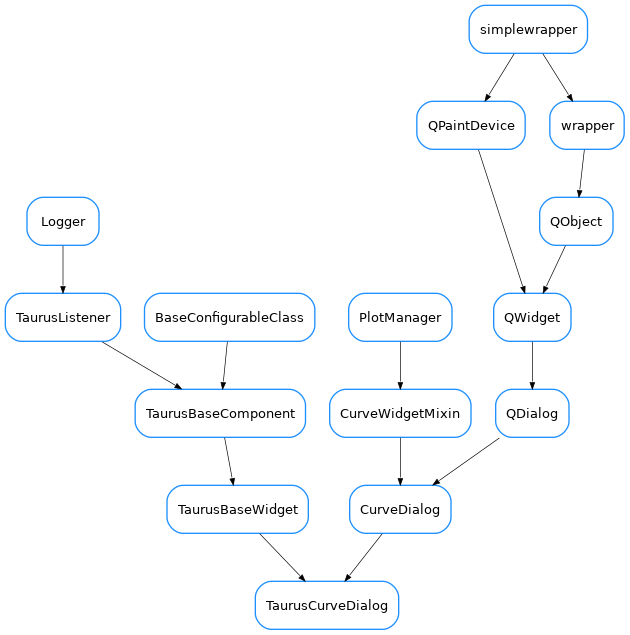TaurusCurveDialog

- class TaurusCurveDialog(parent=None, designMode=False, toolbar=True, **kwargs)[source]
A taurus dialog for showing 1D data. It behaves as a regular
guiqwt.plot.CurveDialogbut it also offers the expected Taurus interface (e.g. setting models, save/apply configs, drag&drops,…)See also
TaurusCurveWidgetImport from
taurus.qt.qtgui.extra_guiqwtas:from taurus.qt.qtgui.extra_guiqwt import TaurusCurveDialog
- addModels(modelNames)[source]
Creates TaurusCurveItems (one for each model in modelNames) and attaches them to the plot.
Note
you can also add curves using
add_items().addModels()is only a more Taurus-oriented interface.add_items()gives you more control.- Parameters:
modelNames (sequence<str> or str) – the names of the models to be plotted. For convenience, string is also accepted (instead of a sequence of strings), in which case the string will be internally converted to a sequence by splitting it on whitespace and commas. Each model can optionally be composed of two parts, separated by “|” indicating X and Y components for the curve. If only one part is given, it is used for Y and X is automatically generated as an index.
See also
add_item()
- model
reimplemented from
TaurusBaseWidget
- modelChanged
- modifiableByUser
whether the user can change the contents of the widget
- Returns:
True if the user is allowed to modify the look&feel
- Return type:
- setModel(modelNames, **kwargs)[source]
Removes current TaurusCurveItems and adds new ones.
- Parameters:
modelNames (sequence<str> or str) – the names of the models to be plotted. For convenience, a string is also accepted (instead of a sequence of strings), in which case the string will be internally converted to a sequence by splitting it on whitespace and commas. Each model can optionally be composed of two parts, separated by “|” indicating X and Y components for the curve. If only one part is given, it is used for Y and X is automatically generated as an index.
See also